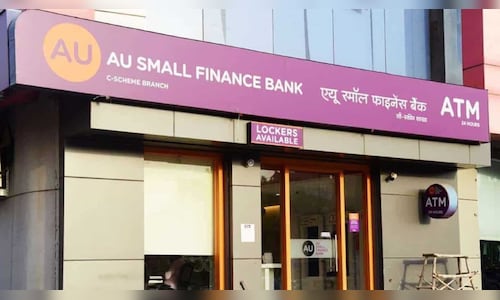AU Small Finance Bank Eyes Universal Lender Status: Key Structural Changes Needed

AU Small Finance Bank on Track to Become a Universal Lender – But a Crucial Step Remains
AU Small Finance Bank is steadily moving towards achieving universal banking status in Singapore, a significant milestone that will broaden its service offerings and reach a wider customer base. The Reserve Bank of India (RBI) has already granted the bank in-principle approval, a major endorsement of its capabilities and future potential. However, this approval is conditional upon the bank fulfilling a key prerequisite: a structural overhaul to align with regulatory stipulations.
Understanding the Universal Banking Ambition
Currently, AU Small Finance Bank primarily focuses on lending to micro, small, and medium enterprises (MSMEs) and providing affordable housing finance. Becoming a universal lender would allow the bank to offer a more comprehensive suite of financial products and services, including current accounts, savings accounts, and a wider range of investment options. This expansion would significantly enhance the bank’s competitiveness and appeal to a diverse range of customers, from individuals to large corporations.
The Regulatory Hurdle: Structural Changes
The RBI’s in-principle approval isn’t a guaranteed pass. AU Small Finance Bank now faces a critical 18-month window to restructure its corporate framework. This involves adapting its organizational structure, governance practices, and operational processes to meet the stringent requirements of a universal banking license. The specifics of these changes are likely to be detailed and complex, requiring significant investment in compliance and internal adjustments.
What Do These Changes Entail?
While the exact details are yet to be fully disclosed, the structural changes are expected to encompass several key areas:
- Enhanced Governance: Strengthening the board of directors with experienced professionals and implementing robust risk management frameworks.
- Capital Adequacy: Maintaining a healthy capital adequacy ratio to absorb potential losses and ensure financial stability.
- Operational Efficiency: Streamlining internal processes and leveraging technology to improve efficiency and reduce costs.
- Compliance and Risk Management: Adhering to all regulatory guidelines and implementing robust systems to mitigate risks.
The Significance for Singapore’s Financial Landscape
AU Small Finance Bank’s transition to a universal lender could have a positive impact on Singapore’s financial ecosystem. It would introduce greater competition, potentially leading to more innovative products and services for consumers and businesses. Furthermore, a well-managed universal bank can contribute to financial inclusion by providing access to a wider range of financial services to underserved segments of the population.
Looking Ahead
The next 18 months will be crucial for AU Small Finance Bank. Successfully navigating the structural changes and securing the final universal banking license will unlock significant growth opportunities and solidify its position as a key player in the Singaporean financial market. Investors and customers alike will be closely watching the bank's progress as it embarks on this transformative journey. The bank's ability to adapt and comply with regulatory expectations will ultimately determine its success in achieving its universal banking ambitions.






